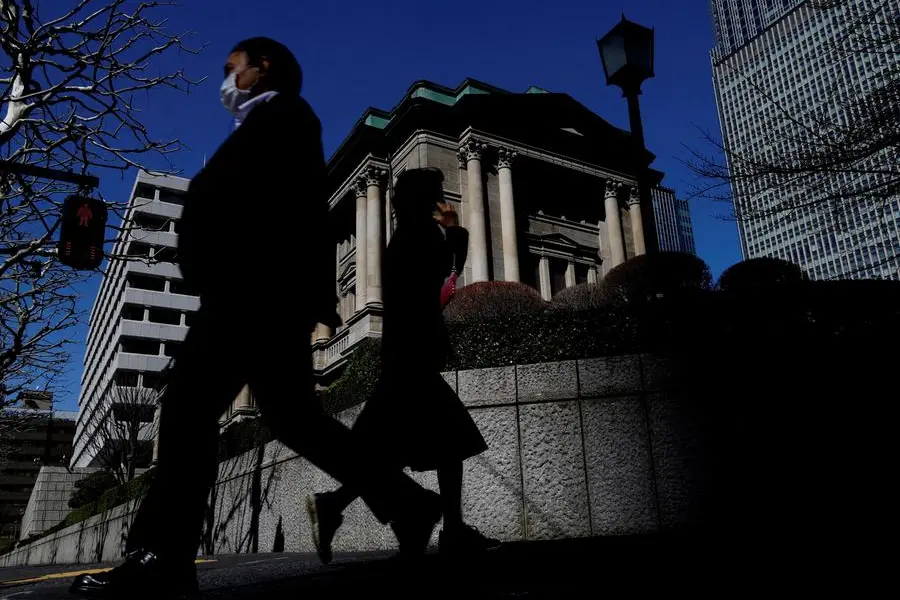PHOTO
KANAZAWA - The Bank of Japan must be vigilant to the fallout from recent market turbulence but stay on course to raise interest rates, its board member Hajime Takata said on Thursday, reinforcing market expectations for further hikes in borrowing costs.
The remarks echo those of BOJ Governor Kazuo Ueda, who last month reaffirmed his resolve to raise rates again if inflation remained on track to sustainably hit the bank's 2% target.
"The stock and currency market saw big volatility in early August and the fallout continues. As such, we need to scrutinise market developments and their impact for the time being," Takata said in a speech to business leaders in the city of Kanazawa.
But the BOJ must raise rates further "if inflation moves roughly in line with forecasts, and companies continue to boost spending and wages," he said, suggesting the recent market volatility would not derail the bank's long-term rate hike plan.
Mounting unease over the U.S. economic outlook is stoking global markets volatility, with Japan's broad Topix share gauge plunging 3.7% on Wednesday in its biggest daily drop since the Aug. 5 market rout.
The August market sell-off prompted deputy governor Shinichi Uchida to say the BOJ won't hike rates when markets are unstable.
Several European central banks have started reducing rates, while the U.S. Federal Reserve is expected to cut in September. But Takata said the effect of their past aggressive monetary tightening could appear with a lag and weigh on Japan's economy.
The difference in monetary policy stance between that of the BOJ and other central banks could also cause market turbulence, Takata said. "As such, we must carefully monitor domestic and overseas developments for the time being," he said.
Takata added that achievement of the BOJ's inflation target remained in sight despite the market turbulence, as companies have become more keen than before about passing on rising costs through price hikes.
"We must scrutinise without any pre-set idea the chance of Japan seeing another wave of price hikes toward the latter half of the current fiscal year," he said.
In a historic step towards ending a massive decade-long monetary easing campaign, the BOJ ditched negative interest rates in March and raised short-term rates to 0.25% in July on the view the economy was making progress toward durably achieving its 2% inflation target.
Governor Ueda has signalled the bank's readiness to raise rates further if inflation stays around 2% in coming years accompanied by solid wage gains, as it currently projects.
Data released on Thursday showed Japan's inflation-adjusted wages rose for two consecutive months in July, underscoring the BOJ's view that rising pay will support consumption and enable firms to keep hiking prices.
A former bond strategist, Takata has voted for the BOJ's policy shifts, and is considered by markets as neutral to slightly hawkish on monetary policy.
(Reporting by Leika Kihara; Editing by Himani Sarkar and Shri Navaratnam)





















